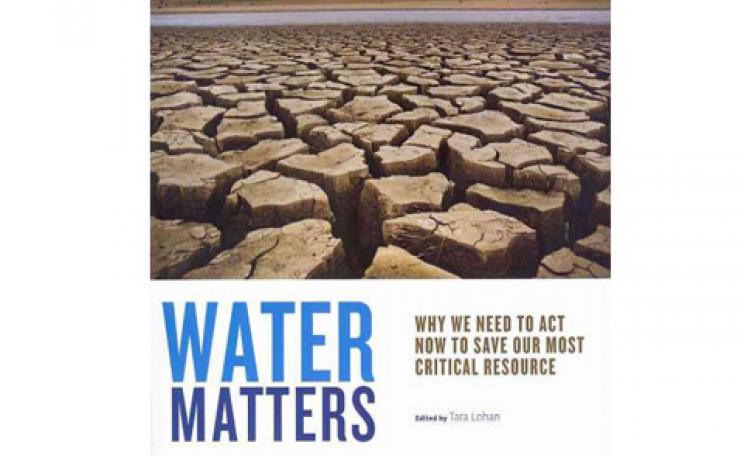‘If you wake up to find that your house is flooding, you don’t ignore it and set off to work because you’re worried about losing a day’s pay - you start shifting sandbags.’ This is Danny Chivers’ pithy metaphor for world thinking on climate change. Read another way, it means that developed society and the individuals in it are quite happy to go along with life as is: after all, it’s the easiest thing to do. And it's this lacklustre approach to doing anything about climate change, he says, is why the western lifestyle is the biggest hindrance in the fight against global warming.
Multifaceted Problems
Chivers deftly outlines all the parties involved in the problem, not simply to dole out blame, but to give us a sense of the sheer scale and depth of the problem and the solution. If corporations could put aside profit margins, he argues, and took real responsibility for change, they could be at the forefront of a green revolution. After all, they have the money to do it. The same is true of national governments. Chivers says that real change on a global level cannot take place without political support. The truth of this is undeniable, borne out the United States' reluctance to sign up to Kyoto and the continuing resource stripping perpetrated by the Chinese government. The importance of political will for change is partly because governments have the capital to effect it on a multinational level and because they can enact regulations within their states to restrict carbon emissions and promote cleaner energy. Individuals too have considerable collective power. As consumers we know we can choose brands and companies that are more eco-friendly and environmentally responsible. We can also become part of local and national groups lobbying politicians for more green measures and support for eco-initiatives. We can even organise community-based farms and projects to begin this process on a micro scale, allowing a solution to evolve from the ground up. All of this begs the question: why aren't we?
Preaching To The Choir
Unfortunately, Chivers’ metaphor of the flooding house contrasts with a more obvious observation he makes about climate change not being a visible or immediate danger. The latter point is a valid one as it explains why we aren’t clamouring for a green overhaul of our societies and why so many are still unconcerned by global warming. The tough tone taken by Chivers is understandable; he believes it’s the only way to get our attention. It’s just that he doesn’t acknowledge the immensely complex nature of what he’s asking, of the enormity of what he wants the various groups to do, and more importantly, just how fast he wants them to do it. Its not believing in climate change that’s the issue, it’s the problem of getting people to believe that some of the more apocalyptic visions of future could come to pass and then, getting them to do something about it.
Chivers proposes a number of goals but is perhaps overly single minded about achieving them. The shift towards renewable energy and clean air and water is desirable but it’s not something we can do immediately because it is a highly complex series of systems we are trying to change. There are several consequences he doesn’t want to think about, because he is too focused on his almost utopian green goals. The result is that unless you are already in his camp, you are unlikely to be convinced to take the dramatic action Chivers is asking for. What he has to say is valuable and based on scientific fact, and it is true that many of the solutions he suggests would improve the quality of life for a large percentage of the global population. Its just not going convince everybody because it doesn’t seem to be talking to everybody, just those who already believe in the cause to the same extent that he does.
To save £5 off the cover price (£7.99) of The No-Nonsense Guide To Climate Change, click here.
| READ MORE... | |
 |
HOW TO MAKE A DIFFERENCE Just how green is Climate Week? From the 21st to 27th March thousands of people in the UK will be involved in a week of action on climate change. So why is Climate Week making some greens so angry? |
 |
VIDEO Climate refugees: Environmental Justice Foundation teams up with London cinemas EJF’s ‘No Place Like Home’ film is part of their campaign arguing the case of people affected by climate change, who without international help and new binding agreements on assistance, will have no where to go and no means to survive... |
 |
NEWS ANALYSIS Climate adaptation is bringing sceptics in the US and UK onboard - but is it fast enough? Some of the more conservative areas of the US like Florida are now adapting to climate change yet they are still unwilling to accept the necessity of reducing greenhouse gas emissions |
 |
REVIEW Arctic by Bruce Parry Part travelogue, part lament for a threatened way of life, Ruth Styles says that Bruce Parry’s latest book, Arctic, shows us exactly what we stand to lose if global warming isn’t stopped - today |
 |
REVIEW The Secret Life of Stuff Clear and well written, Julie Hill's opus sheds light on the issues of waste and consumption but provides solutions that are too simplistic to be of real use, argues Ruth Styles |








